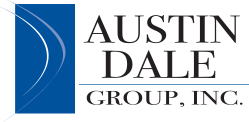06 Jun Why You Should Exit While You’re Ahead – A Cautionary Tale
The very best time to sell your business is when someone wants to buy it. While it can be tempting to continue to grow your business forever – particularly when things are going well — that decision comes with a significant downside.
Take a look at the story of Rand Fishkin who started his entrepreneurial journey when he joined his mother’s marketing agency as a partner:
When Fishkin realized how much his Mom’s customers were struggling to get Google to display their company in a search, he immersed himself in the emerging field of Search Engine Optimization (SEO).
He began writing a blog called SEO Moz, which led to an SEO consulting and software company. By 2007, Moz was generating revenue of $850,000 a year when Fishkin decided to drop consulting to become solely a software business.
The company began to grow 100% per year and by 2010, Moz was generating around $650,000 in revenue each month, attracting the attention of Brian Halligan, co-founder of marketing software giant HubSpot.
HubSpot wanted to buy Moz and was offering $25 million of cash and HubSpot stock – an offer almost five times Moz’s $5.7 million of revenue in its last complete financial year.
But Fishkin wasn’t satisfied. He believed a fast growth Software-as-a-Service (SaaS) company was worth four times future revenue and was confident Moz would hit $10 million by the end of that year.
Fishkin counter offered, saying he would be willing to accept $40 million. HubSpot declined.
New Plans Ahead
Instead of selling Moz, Fishkin raised a round of venture capital and started to diversify away from SEO tools into a broader set of marketing offerings. The further Moz veered away from its core in SEO, the more money his business began to lose.
By 2014, Moz was in full crisis mode, and Fishkin had begun suffering from a bout of depression. He decided to step down as CEO, describing his resignation as a “lot of sadness, a heap of regrets and a smattering of resentment.”
Fishkin became a minority shareholder in a company he no longer controlled where the venture capitalists had preferred rights in a liquidity event.
A Lesson Learned
In the ensuing years since turning down Halligan’s offer, HubSpot went public on the New York Stock Exchange and had been worth nearly 20 times as much.
Fishkin revealed that today, his liquid net worth is $800,000 – much of which he was about to spend on elder care for his grandparents. The Moz stock he holds may or may not have value after the venture capitalist get their preferred return. At the same time, Fishkin estimated HubSpot’s offer of $25 million in cash and HubSpot stock would now be worth more than $100 million (based on the increased value of HubSpot’s stock).
Fishkin’s tale is a cautionary reminder why the best time to sell your company is when someone wants to buy it – a story that is shared in his book Lost and Founder: A Painfully Honest Field Guide to the Startup World.
What if an offer was made for your business today? Would you be ready to sell? Would you regret it if you said no?
About Austin Dale Group
Austin Dale Group is a tech M&A firm in Austin, TX, and our clients include software companies, cloud solution providers, and IT managed services – as well as healthcare and other tech-enabled businesses. We specialize in M&A and strategic growth advisory services for middle-market technology businesses with revenues up to $75 million. We help our clients prepare for a merger or acquisition, build shareholder value, and sell their business (or divest a division). We also work with companies that wish to acquire other companies as part of their growth strategy.
Republished with permission from Built to Sell Inc.






